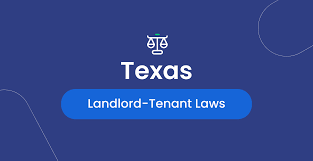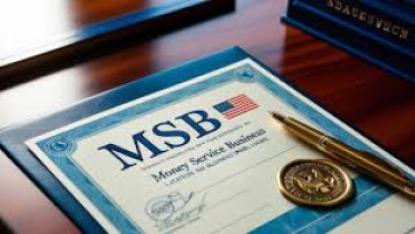Understanding Your Rights as a Tenant in Texas When Landlords Ignore Repair Requests
As a tenant in Texas, you have certain rights that protect you when your landlord ignores repair requests for your rental property. It is crucial to understand the appropriate steps to take in such situations to ensure your living conditions remain safe and habitable. Texas law has provisions that allow tenants to take action when repair requests go unaddressed, empowering renters to assert their rights effectively.
This comprehensive article serves as an informative guide on what tenants can do under Texas law if their landlords fail to repair essential issues within the rental property. From sending written notices to exploring legal remedies such as repairing and deducting costs or breaking the lease lawfully, we cover the entire process. Proper documentation and communication are emphasized as vital elements of protecting your rights.
The Importance of Prompt Repairs in Rental Properties
Maintaining a safe and habitable living environment is the primary responsibility of landlords, and failure to do so may result in significant legal consequences. Texas law recognizes the importance of timely repairs, especially for issues that affect health, safety, or essential services such as heating, plumbing, or structural integrity.
As a tenant, it is essential to understand your role in notifying the landlord about repair needs and following proper procedures to enforce your rights should the landlord fail to act. This knowledge helps prevent misunderstandings and facilitates a smoother resolution process.
Step 1: Submitting a Written Repair Request
The first and most crucial step in addressing repair issues is submitting a written notice to your landlord. Verbal requests, while sometimes effective, lack the formal evidence required if legal action becomes necessary.
- Clearly describe the repair needed, specifying how the issue affects your living situation.
- Include the date when you noticed the issue and when the notice is being sent.
- Request a reasonable timeframe within which the landlord should complete the repairs.
- Send the written notice via a method that provides proof of delivery, such as certified mail or email with read receipt.
Maintaining copies of all written communications is vital for documentation purposes. They serve as proof of your efforts to notify the landlord and request necessary repairs.
Step 2: Allowing a Reasonable Time for Repairs
After submitting your written notice, Texas law expects landlords to act within a reasonable time to address the issues. The definition of "reasonable time" can vary based on the nature and severity of the problem. For urgent matters affecting health or safety, action should be prompt.
If the landlord fails to address the problem within this timeframe, tenants may have legal avenues to pursue remedies. However, it is important to avoid making repairs without notification or consensus, as unauthorized actions can complicate the situation.
Step 3: Repair and Deduct Option
One legal option available to Texas tenants when landlords neglect repairs is the "repair and deduct" remedy. This means tenants can hire a professional to conduct necessary repairs and deduct the reasonable cost from their rent. However, specific criteria and procedures must be met to exercise this option lawfully.
- Ensure the repair issue substantially affects the livability or safety of the property.
- Send a written notice detailing the needed repairs and give the landlord reasonable time to respond.
- Obtain estimates or hire licensed professionals to make repairs after the landlord's failure to act.
- Keep all receipts and invoices related to the repair costs.
- Deduct the repair amount from your next rent payment and notify the landlord in writing of this deduction.
It is critical to understand the complexities of this option and to consult with a legal professional to ensure compliance with Texas law. Improper execution may expose tenants to lease violations or eviction risks.
Step 4: Breaking the Lease Legally
In extreme cases where landlords ignore repair requests, and the property becomes uninhabitable, tenants may have the right to terminate their lease without penalty. Texas law allows for lease termination under conditions where the landlord fails to maintain the premises as required by law.
Before considering lease termination, tenants must:
- Provide proper written notice of the repair issues and the landlord's failure to respond.
- Allow a reasonable timeframe for repairs to be made.
- Confirm that the repair issues render the property uninhabitable or violate health and safety codes.
- Notify the landlord in writing of your intent to terminate the lease due to these conditions.
Breaking the lease without following proper legal procedures can result in financial liability and damage to your rental history. Always seek legal advice when pursuing lease termination under these circumstances.
The Vital Role of Documentation
Throughout this process, documentation plays an indispensable role. Keeping records of all communications, notices, repair receipts, photographic evidence of damaged conditions, and any other relevant materials provides a concrete basis for your claims.
Proper documentation protects tenants from disputes and supports legal claims if the matter escalates to court or mediation. Digital backups as well as physical copies should be maintained securely.
Seeking Professional Assistance
Navigating landlord-tenant disputes and exercising rights under Texas law can be complex. Tenants are encouraged to seek professional guidance to understand their options thoroughly and take appropriate actions.
Our company, Legal Marketplace CONSULTANT, offers expert advice and legal services to tenants facing unresponsive landlords. For personalized assistance, you can contact us through the communication methods provided in our bio or send a private message. Let our experienced team support your efforts to ensure safe and habitable living conditions.
- Understanding Texas tenant rights and landlord obligations;
- Properly drafting and sending written repair requests;
- Documenting all communications and repairs;
- Guidance on repair and deduct procedures;
- Legal advice on lease termination under uninhabitable conditions;
- Support with legal disputes and mediation services;
Conclusion
Tenants in Texas are protected by laws designed to ensure landlords maintain their rental properties in a safe and habitable condition. When landlords ignore repair requests, you have the right and legal means to take action, including sending written notices, pursuing repair and deduct remedies, or breaking your lease if necessary.
Documenting every step of the process is essential for protecting your rights and building a strong case if legal intervention is required. Seeking professional advice from experienced legal consultants can further ensure that you navigate these situations effectively and lawfully. Contact us at Legal Marketplace CONSULTANT for expert guidance and support to uphold your tenant rights under Texas law.
Legal Marketplace CONSULTANT is a legal services company specializing in comprehensive assistance for tenant rights and landlord-tenant disputes in Texas. Our expertise ensures you receive reliable and professional support at every step.































